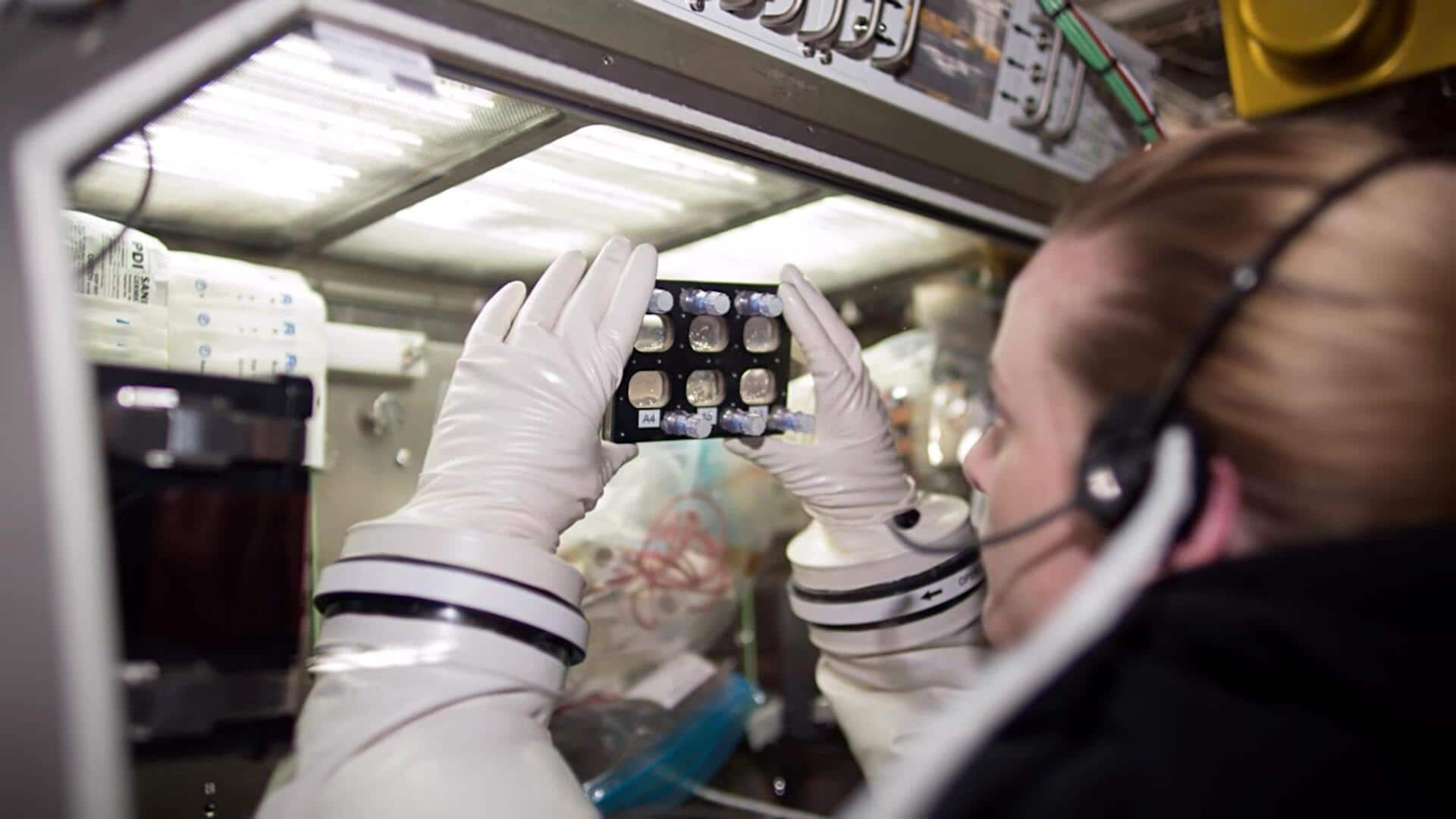
Stem cells grown in space show enhanced regenerative abilities: Study
What's the story
In a groundbreaking study, researchers from the Mayo Clinic in Florida have found that stem cells cultivated in space show significantly enhanced regenerative abilities.
The team carried out their experiments on the International Space Station (ISS) and focused specifically on adult stem cells.
These findings could potentially revolutionize our understanding of disease prevention and treatment strategies.
Discovery
Space environment reveals new stem cell mechanisms
Pathologist Abba Zubair from the Mayo Clinic, said studying stem cells in space has revealed cell mechanisms that would otherwise remain undetected or unknown within normal gravity.
This discovery points to a broader scientific value to this research, including potential clinical applications.
The team's focus was on adult stem cells, which have more limitations in their division and transformation compared to embryonic ones.
Potential solutions
Space labs could address challenges in stem cell research
The study indicates that space labs could possibly solve some of the problems of growing adult stem cells outside the body. The process is currently complicated, time-consuming, and expensive.
A range of stem cell types were tested on the ISS, all producing positive results. For example, mesenchymal stem cells (MSCs) showed better management of immune system responses and reduced inflammation when grown in microgravity.
Growth enhancement
Microgravity enhances stem cell growth and stability
The researchers noted overall improvements in the manner in which the cells were expanding, and in the stability of their replication, even after returning to Earth.
Zubair explained, "The space environment offers an advantage to the growth of stem cells by providing a more natural three-dimensional state for their expansion."
This closely resembles growth of cells in the human body, unlike the 2D culture environment available on Earth.
Medical applications
Space-grown cells could aid in treating age-related conditions
The research team is hopeful that space-grown cells could help treat age-related conditions, such as strokes, cancer, and neurodegenerative diseases like dementia.
"The space research conducted so far is just a starting point," Zubair said. He believes that a wider view about stem cell applications is possible as research continues to investigate the use of space to propel regenerative medicine forward.